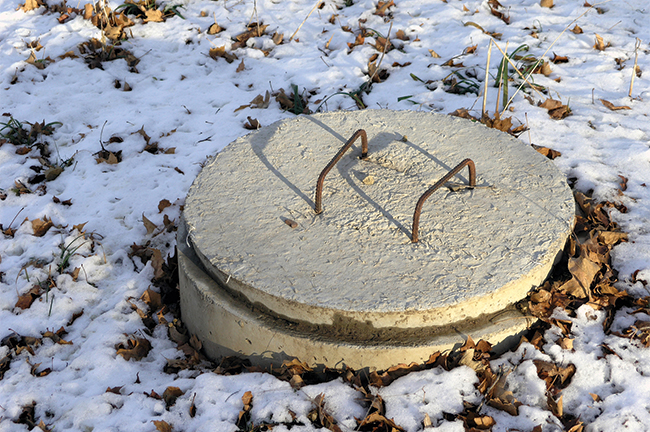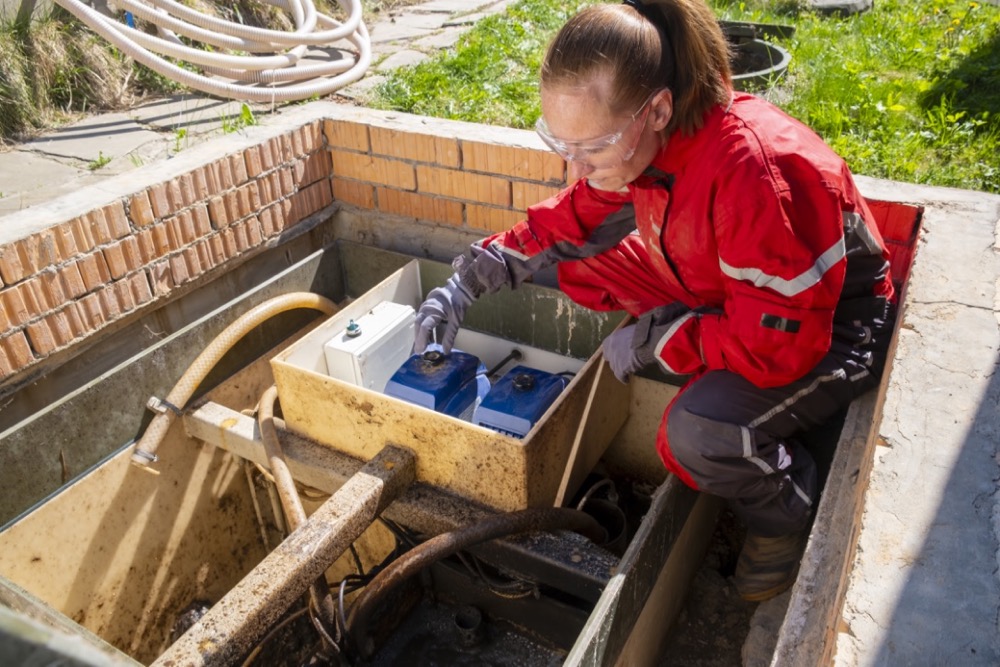
Frosty weather can cause significant trouble to residential and commercial septic systems. During the cold season, several issues may arise and can impair the water treatment. From the freezing ground to freezing pipes and tanks, all of these can cause major damage to septic systems.
Determining what complications to expect and how to prevent them is key to a winter without any setbacks in septic systems. Here are some septic system issues and helpful tips on how to deal with them:
Freezing Septic Tanks and Pipes
Frozen tanks and pipes are the most common problem for septic systems. Once snow or frost falls around the septic tanks and surrounding areas, problems may arise. When the components of a septic system freeze, it slows down or stops natural bacteria from breaking down waste in the tank. If the wastewater is not sufficiently broken down, the system can be overloaded and may cause clogging. Additionally, if the wastewater accumulates in a frozen line and ruptures, this poses a significant health hazard.
How to deal with it?
- Set up a cover on a septic tank or simply cover it with a blanket during winter, particularly at night.
- Running the water and using your septic tank every day will also reduce the possibility of freezing.
- Mulch, leaves, or plants are also a recommended cover for your pipes.
- Avoid cutting grass in the soil treatment area at the end of fall. The extra grass length can help trap the snow, providing insulation over the field.
Snow and Soil Pressure
Be careful where you park your vehicle as it can cause compacted soil and snow. Ensure that there are no heavy objects in the area above the septic system. Compacted soil and snow above could reduce the insulation of your septic system and build pressure to solidify the septic tanks. This will impede the proper treatment and drainage of the wastewater in the draining fields.
How to deal with it?
To prevent these issues, aerate the soil around your system before the winter season arrives. Aside from that, clear the snow from your septic system, but stop moving around where your system is installed.
Overused/Improper Use by the Guests
Winter is also holiday season meaning there are more celebrations and parties, and more meal planning and increased visitors. Your septic system could be overworked with additional shower and toilet use, laundry, and food preparation.
How to deal with it?
Try arranging a scheduled time for showers and dishes. Besides that, remind visitors of the proper use of the bathroom and kitchen sinks when staying with you.
Irregular Usage
The process of digesting organic waste by anaerobic bacteria keeps the septic tank warm. This is why irregular use of water during cold weather can affect the septic system.
Using warm water on a daily basis will also help keep pipes from freezing. When septic tanks are not used frequently, they are more prone to freezing. In unoccupied properties, systems are unable to sustain a constant temperature due to the low level of water and sewage that flow through the system. This can cause damage to the septic system.
How to deal with it?
If you or your family are planning to be away during the winter, empty your septic tank. You should schedule a pumping first before traveling to help keep the septic tank parts from freezing and bursting.
Breach in Water Pipes
Faulty pipes can worsen the possibility of damage in the winter season.
Leaks during the cold weather will also increase the chances of freezing, which will further weaken the system. Clogs cause the wastewater to accumulate in the pipes. Frozen drainage can end up causing damage to the septic tank, which can also contaminate drinking water.
How to deal with it?
These problems can be solved by replacing or fixing leaky pipes before the winter arrives. Also, both clogs and leaks should be taken care of as soon as they are spotted in order to avoid these problems from becoming severe.
The best way to avoid these problems is by taking precautions and making preparations before the cold weather begins. Homeowners need to ensure that their septic systems are fault-free and not prone to freezing.
For more information, contact Morse Engineering and Construction.
Source: build-review.com



